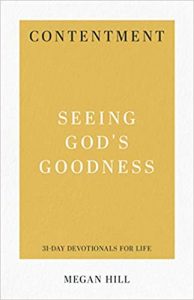
by Lucy | Apr 11, 2019 | People Who Hurt
When you’re a Christian and struggle with doubt, you may wonder what’s wrong with you. You may even think your doubts prove you were never a Christian in the first place or, at best, a horrible hypocrite.
You might be tempted to give up, right?
The truth is, struggling with doubt is lonely and overwhelming and discouraging. But your struggling can also bring you closer to God.
What doubting sounds like
Struggling often sounds like this: A counselee I’ll call Katie began thinking God just didn’t care. First, her husband pushed her away. He kept playing video games late into the evening, even though he has promised he’d let up. So she thought–>Why did God give me an insensitive husband?
Second, her church made the news in a bad way. Under allegations of financial mismanagement and of a temperamental pastor who bullied the staff, her church was hurting. People were leaving in droves, disheartened. And she thought–> Couldn’t God have stopped this?
Finally, stress at work was getting worse. And her divorced dad kept bugging her to spend more time with him. And a good friend moved across country. It was just too much. Again, her thoughts questioned God –> Why isn’t God helping me? Don’t You care?
Doubt sounds like tears dripping on parched land.
Click & Tweet!
So why hasn’t God — all powerful and all wise and all loving — made Katie’s life turn out better? And why can’t she know with certainty right here, right now that everything will turn out okay and she’ll feel peace again?
And what about you? What about your cries for relief from life’s struggles?
So we walk by …
… Faith. The Bible gives the reason for our struggles.
We walk by faith, not by sight. 2 Cor. 5:7
Yet, with physical bodies in a physical world, we very often rely on getting our certainty through our physical senses of touch, hearing, smell, taste, and sight. Elyse Fitzpatrick in Doubt: Trusting God’s Promises adds that another way we know what’s cetain is having been taught it. Consider the Civil War, or anything of historical record. Indeed, how would we know the Civil War actually happened but by studying it and seeing artifacts and visiting battlefields?
You’re in good company
Abraham, Moses, John the Baptist — these three faithful men each had their doubts too. You’re in good company, dear Doubter.
- Abraham and his wife Sarah doubted God’s promise that he would give them a son in their old age (Gen. 17:17, 18:12).
- Having parted the Red Sea and witnessed many other miracles, Moses still harbored unbelief (Num. 20:12).
- John the Baptist had expected Jesus to bring judgment and, while in prison, he sent a message to Jesus: “Are you the one who is to come, or should we expect someone else?” (Matt. 11:3).
And we cling to our hope
When you struggle with doubt, you may wonder if you’re the problem. Or that this whole Christian thing is a joke. Or that you’ve been taught all wrong.
“Perhaps you started your Christian walk with a strong faith but have faced difficulties and setbacks, and now you’re wondering whether if any of it is true,” Fitzpatrick wonders. If this sounds like you, please don’t worry or think you’re the worst Christian ever.
Everyone questions the truth they had once believed wholeheartedly.
Click & Tweet!
So what’s the hope?
I encouraged Katie, as I’ve encouraged my own heart (yes, I’ve struggled with doubt too), with biblical truth reminders from J.I. Packer in his classic Knowing God.
- I am a child of God.
- God is my Father.
- Heaven is my home.
- Each day in one day closer.
- My Savior is my brother.
- Every Christian is my brother too.
My prayer is you’ll wrestle with your doubts and not give up. Choose to keep reminding yourself of the truth your clung to when you first came to faith in Jesus Christ. You are not alone. God is with you.
Click & Tweet!
I’d love to answer your questions and encourage you. Simply send me an email. If you think you may be interested in biblical counseling by Skype or FaceTime, read this. It answers some FAQs. Let’s connect.
Counseling hearts to hope,
Lucy

by Lucy | Dec 24, 2018 | biblical counseling, thoughts
Does a truly beautiful Christmas mean newly fallen snow, gingerbread houses, and piles of sparkly presents under the tree? Of course not. A truly beautiful Christmas is so much more.
God adorns you on the inside, beginning in your thoughts. Yucky, God-dismissing thoughts are disgusting like dirty snow. But beautiful God-glorifying thoughts spill into new attitudes and new actions.
What’s truly beautiful: a Christ-focused Christian woman!
But how do we get from ugly, dirty snow thinking to the truly beautiful? This is a favorite question, one I use to counsel my own heart and to help my counselees. Indeed, if we don’t know our hope, then how can we get there?
In today’s enouragement…

You’ll see how to focus your thoughts on God’s glory, which in turn changes your attitude and actions. And, dear sister, if now you have crummy thoughts and a humbug attitude, please keep reading because these words are for you.
Click & Tweet!
1. Focus on God in Your Thoughts
A truly beautiful Christmas begins with thinking on the truth that we love God because he first loved us (1 John 4:19). We couldn’t save ourselves. We need a Savior, born in a manger long, long ago, God’s answer to our deepest problem. That is, sin.
And this is important: we choose to focus on God’s glory with our minds, not our feelings. Please don’t let emotions rule you. For when you do, you may soar like an eagle one moment but drop like a stone the next.
Instead, focus on his glory no matter your feelings. As you do, nasty thoughts lessen in intensity and duration and new, God-glorifying thoughts take their place.
OUT GOES
Jealousy, bitterness, sadness, anxiety, doubt
IN COMES
Generosity, kindness, contentment, peace, confidence
2. Focus on God in Your Attitude
A truly beautiful Christmas becomes an amazing attitude. You see, as think on the God’s truth and agree with it, your attitude renews. To illustrate, let’s look at 1 Thessalonians 5:18 with my counselees. This verse says,
Give thanks in all circumstances; for this is the will of God in Christ Jesus for you.
As you might expect, most of my counselees deal with tough stuff. Who wants to give thanks for the hard? No one, right? But this isn’t what the verse says. It says to give thanks in all circumstances.
Yes, it’s horrible to learn a husband looks at porn. And it’s awful a teen daughter skips class or that you may lose your job. But you can be thankful that God is in control and is working out all things even when you cannot see it (2 Corinthians 5:7).
Are you beginning to see how your attitude changes as you focus on God? No one is a lost cause, no situation is hopeless. To the contrary! If you need help to improve your thinking, contact me.
Focus on God in Your Actions
A truly beatiful Christmas also means new God-glorifying actions, whether in word or deed. But each of us are weighed down, right? The single mom, the empty nester, the woman in chronic pain, the perfectionist, and on and on and on.
And modern-day, busy-busy Christmas makes demands on our schedules and energy, and sometimes in the middle of it all, our thoughts go south and our attitudes stink. But when we focus on God, our actions and words can display Christ beautifully.
Remember, change does NOT start with behavior modificaiton. Rather, as mentioned, it begins with your thoughts. So if you (or a friend) notice you spoke sharply or complained about snow or lack thereof, or if you’re dissatisfied, choose to think about your thoughts.
Ask yourself–
- What thoughts just ran though my mind?
Then condider–
- Do my thoughts honor God? Do they line up with the Word?
If not, then determine to change them.
- First, identify right thinking.
- Second, agree with God to renew your thoughts.
- Third, ask his help to change.
- And finally, thank him for what he’ll do even before he does it. This is faith!
Indeed, focusing on God in your thoughts, attitudes, and actions ensures a truly beautiful Christmas!
Merry Christmas, everyone!


by Lucy | Nov 28, 2018 | biblical counseling, relationships
So you are not ‘in-love’ with your spouse anymore? Now what? Should you dump the relationship? Or rekindle passion? Or something better? This article by Eliza Jane Huie appeared first here on The Biblical Counseling Coalition webisite and is used with permission.

“I love my spouse; I’m just not ‘in-love’ with him/her anymore.”
Click & Tweet!
This is a statement I have heard pronounced in the counseling room many times by couples. Both women and men have said it. It is usually said in the context of a marriage counseling session scheduled because the couple has reached a crisis state, and in many cases, the one saying it is also declaring their desire to leave the relationship.
To Love and To Be in Love
What does it mean to love or be in love, and is there a difference?
Click & Tweet!
If you spend any time wading through the murky bog of the world’s messages as portrayed in movies, TV shows, and music you might come up with a definition like this:
Love is good-looking, emotionally exciting, and never boring. Love is always interested and supportive of my hobbies, and is never tired or discouraged. Plus, love makes me feel good about myself. And love is sexually in sync; love is totally into me.
So, when a relationship, and for our particular focus—a marriage—becomes dull there can be a temptation to believe that you are not in love. How can you be in love if there is no passion left? How can this really be love if desire for the relationship has fizzled?
Is there hope for a relationship when it has reached this state?
Click & Tweet!
To recover passion you must focus on the right things. As a famous preacher once said, “You have to focus yourself away from yourself.”
Building a marriage around your felt needs is a recipe for disappointment and is contrary to Scripture. Focusing on you is counterproductive. It may seem like it would help if your marriage met your needs, but the unintended consequences are that you become the center of attention and the center of focus.
This is a big problem. The relationship is no longer the point, but you and your needs are. The natural consequence of this is when you feel like your spouse is not meeting your needs, you no longer want the relationship. You may not initially leave, but you begin to check out.
The Scriptural Purpose of Marriage
Scripture speaks of a very different purpose for marriage. You get married to forget about yourself, to set yourself aside, to lay your life down. To die.
I will often bring up this point when doing premarital counseling with a couple. It is sometimes a bit humorous to see the look on the face of the dreamy-eyed couple as I tell them that marriage is death.
Marriage, in essence, is an “other-centered” relationship. When you begin to focus on yourself and your needs you begin the deconstruction of the relationship.
For anyone playing the devil’s advocate, I am certainly not talking about essential needs for life and survival. Any time a person is in a marriage that is threatening their safety or well-being it is absolutely appropriate to get away from that relationship and seek help.
Loving Your Spouse
The death that we are called to in marriage is the laying down of your life described in Scripture as the mystery of marriage which points to Christ and the Church (Ephesians 5:32).
How do you know you love your spouse?
- Are you living in your marriage in a way that reflects the relationship that Christ has with his Bride?
- Are you willing to become obedient to the point of death; the death of your own interests and preferences?
- And will you humble yourself and think of your spouse’s interests more than your own?
- Are you willing to count your spouse as more significant than yourself? This is death (see Philippians 2:3-11).
So, what can you make of the original question of what it means to love or be in love? If you have lost that loving feeling, you need to build a new foundation of what love is and what it means. It means you get yourself out of the way. This can only be done as you focus on your Lord.
To love your spouse means that you look to Jesus and learn from Him what love is. “Walk in love, as Christ loved us and gave himself up for u.” (Ephesians 5:2). To love and be in love requires you give yourself up, to die.
Join the Conversation
What does it mean to love or be in love and is there a difference?
What difference does it make in marriage to see marriage as a call to die to self and to live for Christ as you love your spouse?
Friends,
Does your marriage need help? Maybe you are even ready to call it quits. Why not set up a free 15-minute phone consultation with me and ask your questions about restoring your marriage. I meet with folks in person and by Skype/FaceTime/Hangouts worldwide.


by Lucy | Nov 7, 2018 | emotions, relationships |
What are the top needs of moms?
A while back, I queried a few hundred moms in a Facebook group, asking their top 3 needs. My imperfect scientific study revealed these three top vote-getters:
1. A support system of family and/or friends
2. Time alone
3. Encouragement
In this short article, let’s focus on #1. Your can read more about time alone and encouragement here and here.
Family: I Need a Mother Too
Are you old enough to remember the 1970’s TV show “The Waltons“? Watching reruns warmed my toes many an afternoon. Ma and Pa would have a problem on the farm, and the family and neighbors would stick together to solve it. The bonded in tough times.
John Boy was kinda cute in a geeky way. Me and Mary Ellen–we could have been best friends. Grandma had a sour personality too, but she cared, really cared. You could tell.
Back then, in my grade school years, I ached for the sense of belonging too. A network of caring people take note of your needs. They help you and pray with you and for your. They listen. And no one does this better than famiy–usually but not always. Read more about overcoming pain caused by family.
Finding Close Friends at Church!
A couple decades ago, when my family moved to a new home in a small city away from family and friends, I put a plan in action.
Join a friendly church and — presto! — embrace a new, big family.
But my plan was a fail! You see, once we settled into our new church, our friendly “friends” quickly turned back to their own tight circles of longtime buddies.
Have you looked to a church or other group as your support system because you lacked family and friends? How did it go for you? Could you be at home at a church where you were close to Jesus yet not so close to the people? Did you reach out too?
Making Mama-Friendly Connections
The women I queried shared a bunch of ideas on creating a support system when family and friends. Here are some.
Friends to Listen
Babysitter!
- One mom had to return to work when her baby was a newborn. “A reliable babysitter who was prompt, a woman who truly loved children and was extremely dependable.”
- Another woman with four small children says she needs “a friggin’ baby sitter during the day so that I can go get things done without kids, or so if one child has an appointment, I don’t have to lug all of them with me.”
- “Before I had my boys, we lived in a neighborhood where the mothers would trade time, watching each others kids, so they could have some time to do something else. Kind of a babysitting co-op. I think for every hour you put in, you got one back.”
A Mentor
- When family is far away, having an older woman helps. Her wisdom, her laughter, her presence. Also mentors for kids!
“One of my top needs or desires while they were younger (and even now) was/is for older mentors or adults to be in their and our lives. They have no grandparents, no uncles, aunties or cousins and at times I would just love someone to encourage and give advice and just be proud of our children like we are.
I can only imagine what it might be like to ring my parents up and say help or come to this show to watch the kids! I guess I’m saying mentors or adopted aunties or uncles would be a dream come true.”
- Shares a mom who husband travels a lot: “My youngest (has) ADHD. A male mentor could have helped him in his social maturity and awkwardness.”
Friends, please share one of your mama needs in comments. Let’s encourage one another.
Counseling Hearts to Hope!


by Lucy | Oct 23, 2018 | biblical counseling, book reviews, emotions
Contentment: Even for Christian women, contentment may seem an impossible day-by-day reality. It’s so easy to slip into discontent, right?
My own quest for contentment prompted my purchase of Megan Hill’s Contentment: Seeing God’s Goodness right when P&R released it. Her 31 days of devotional readings and life application has helped me keep my focus on Jesus as our ultimate hope.
Get a taste of her book below in an excerpt from her book, which appeared first here on The Biblical Counseling Coalition website. It is used with permission. (Edited for length.–LAM) HIGHLY RECOMMENDED

An Excerpt from Contentment
Discontent can strike at any time. On a Monday morning, the alarm goes off, and discontent is ready to pounce. Anything can invite an attack—a careless slosh from your coffee mug, a terse text from your spouse, a towering mountain of laundry on the basement floor—and you are frustrated with your life before you even walk out the door.
By the time the doctor’s office calls with your test results or the mail delivery brings a new round of bills, you are wishing for a new life entirely. Even something as simple as an unexpected rain shower can unleash thunderclouds in your heart. Just a few hours ago, you were joyfully worshipping God in the assembly of the saints at church and now you are thoroughly disappointed about how this same God is ordering events.
And it doesn’t stop there. Throughout our days, discontent waits for all of us. Whether we are young or old, alone or in a group, relaxing or working, we face circumstances that frustrate our expectations for what life should be like.
Worry
Once it takes hold of our hearts, discontent quickly leads to other sins. Because we fundamentally distrust what God is doing in and for us, our hearts give way to worry.
Every new circumstance feels surprising and potentially harmful. Everything from the flu to the presidential election brings an onslaught of uncertainty. We do not believe that God is caring for us, and we have little confidence that these events will be for our good, so our minds and hearts spin with anxiety.
Envy
Dissatisfied with our own situation, we look around at the lives of others and add the sin of envy. We covet the lives of our friends and neighbors—people who seem to have everything we want and more.
We also covet the lives of strangers—the happy couple with the gorgeous HGTV home or the alumnus whose fast-track career was lauded in the latest university publication. (And) we lust after their accomplishments or relationships or finances, increasing the discontent with our own.
Complaining
Frustrated and disappointed, we also fall into the snare of complaining. Seemingly every situation releases a sigh from our hearts.
The weather is too cold. The gray hairs too plentiful. The kids are too energetic. The pay is paltry, the hours over-long, the commute a total waste.
Like the Israelites in the wilderness, we give voice to our discontent with grumbling—accusing God of mishandling our lives and demanding that he give us what we want.
Discontent—and its evil companions—are everywhere.

Contentment Is Really Possible!
But if discontent waits just around the next corner, grace does too. At every moment, in every one of life’s circumstances, the Lord is ready with forgiveness (Neh. 9:7), encouragement (Rom. 15:5), strength (Phil. 4:13), and love (Rom. 8:38-39). The God who made you and sustains you is able to make grace abound to you for all things at all times (2 Cor. 9:8). In the fight against discontent, you are never alone.
I wrote Contentment: Seeing God’s Goodness because the temptation to discontent is common to all of us (1 Cor. 10:13). By the help of the Holy Spirit, we all—including me—need to rest content in God’s sovereignty over the circumstances of our lives. And it’s only when we look away from ourselves and our own circumstances that we can lay our eyes—and our hearts—on what truly satisfies: God and his good purposes.
This book was born in the midst of my own temptations to grumbling and anxiety. I wrote and edited while experiencing parenting challenges, relational disappointments, a leaking roof, an unexpected job change, and the daily repetition of dishes and laundry and dirty floors.
The Secret of Contentment
Not a day goes by that I don’t have to remind myself of the truth I wrote:
“The secret of contentment is not in having ‘enough’ money (or status or relationships or education). Rather, the secret of contentment is placing our ultimate hope in something secure:
The Lord will never leave us or forsake us; he is our help, so there is no reason to fear.”
Contentment: Seeing God’s Goodness can be purchased from Amazon.
 Megan Hill is a PCA pastor’s wife living in Massachusetts and an editor for The Gospel Coalition. She is the author of Contentment: Seeing God’s Goodness (P&R, 2018) and Praying Together (Crossway, 2016). This article is adapted from Contentment.
Megan Hill is a PCA pastor’s wife living in Massachusetts and an editor for The Gospel Coalition. She is the author of Contentment: Seeing God’s Goodness (P&R, 2018) and Praying Together (Crossway, 2016). This article is adapted from Contentment.
Counseling Hope to Your Heart,












